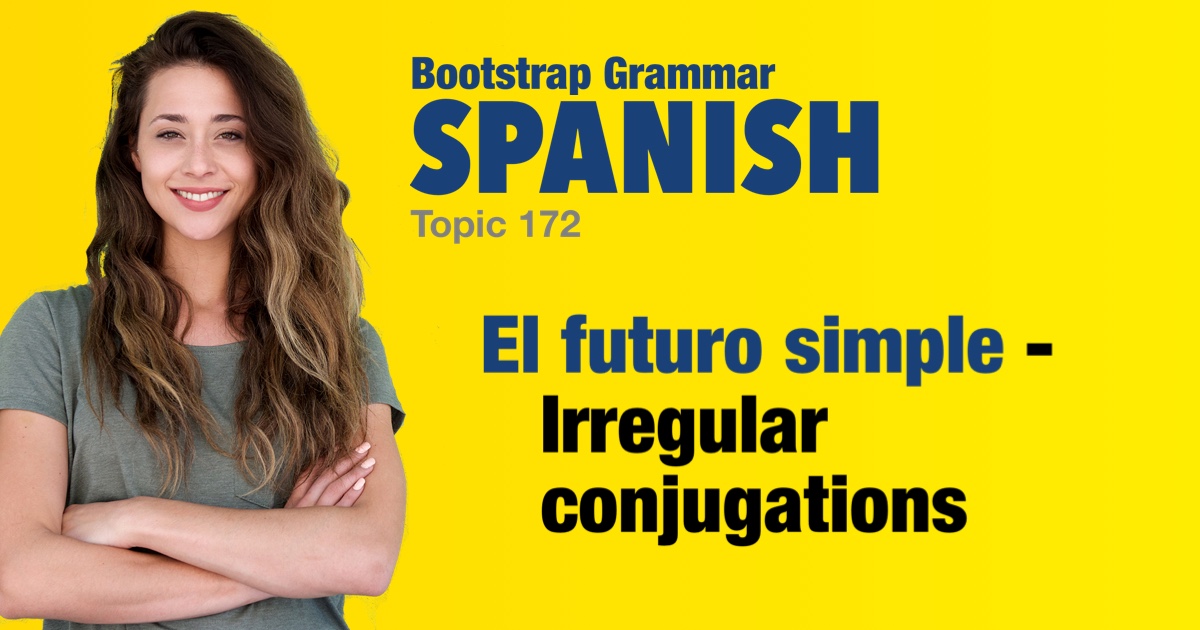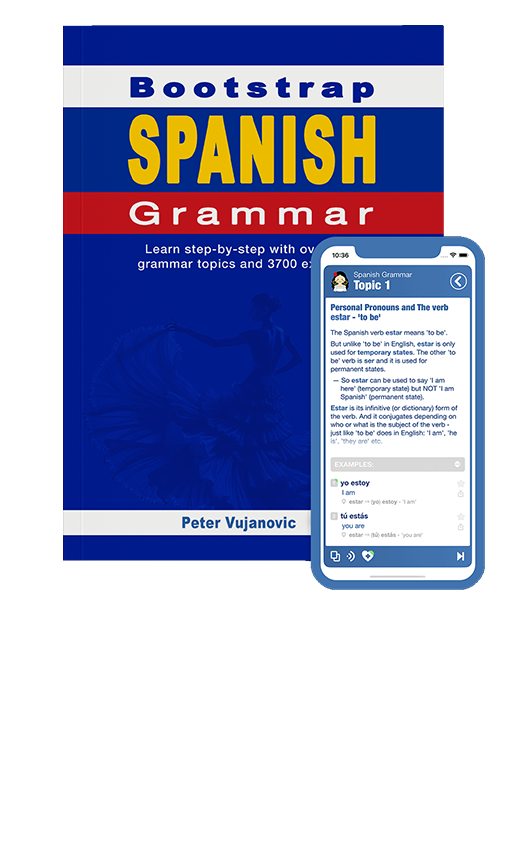Spanish grammar - El futuro simple - Irregular conjugations |
|||
|
|||
Several common verbs have irregular conjugations in the simple future tense (futuro simple). These irregularities involve changes to the verb stem, while the future tense endings (-é, -ás, -á, -emos, -éis, -án) remain the same Here are some of the most common verbs with irregular stems in the future tense: • caber (to fit) - future stem: cabr- • decir (to say, to tell) - future stem: dir- • haber (to have - auxiliary verb) - future stem: habr- • hacer (to do, to make) - future stem: har- • poder (to be able to) - future stem: podr- • poner (to put, to place) - future stem: pondr- • querer (to want, to love) - future stem: querr- • saber (to know - information) - future stem: sabr- • salir (to go out, to leave) - future stem: saldr- • tener (to have) - future stem: tendr- • valer (to be worth) - future stem: valdr- • venir (to come) - future stem: vendr- |
| Examples: | |
|
La reunión tendrá lugar en la oficina central.
The meeting will take place at the main office.
|
|
|
Tendré más tiempo para estudiar la próxima semana.
(I) will have more time to study next week.
|
|
|
Alguien vendrá a ayudarte.
Someone will come to help (you).
|
|
|
Habrá una fiesta en la casa de Juan.
There will be a party at Juan's house.
|
|
|
Hará frío mañana según el pronóstico.
It will be cold tomorrow according to the forecast.
|
|
|
Podremos salir después de terminar los deberes.
(We) will be able to go out after finishing the homework.
|
|
|
Luisa podrá viajar el próximo año.
Luisa will be able to travel next year.
|
|
|
Pondré los libros en la estantería.
(I) will put the books on the shelf.
|
|
|
Pedro pondrá la mesa para la cena.
Pedro will set the table for dinner.
|
|
|
Los estudiantes querrán saber más sobre la historia.
The students will want to know more about history.
|
|
|
Sabré la respuesta después de estudiar.
(I) will know the answer after studying.
|
|
|
El profesor sabrá qué hacer en esa situación.
The teacher will know what to do in that situation.
|
|
|
Saldré con mis amigos el sábado por la noche.
(I) will go out with my friends on Saturday night.
|
|
|
Ana y Marta saldrán temprano para el trabajo.
Ana and Marta will leave early for work.
|
|
|
Tendré una reunión importante mañana.
(I) will have an important meeting tomorrow.
|
|
|
Los niños tendrán clases de natación en verano.
The children will have swimming lessons in the summer.
|
|
|
Ese coche valdrá una fortuna en el futuro.
That car will be worth a fortune in the future.
|
|
|
Vendré a tu casa mañana para estudiar.
(I) will come to your house tomorrow to study.
|
|
|
Mis padres vendrán a la fiesta el sábado.
My parents will come to the party on Saturday.
|
|
|
Habrá cambios en la política de la empresa.
There will be changes in the company's policy.
|
|
|
Habrás terminado el proyecto antes del viernes.
(You) will have finished the project before Friday.
|
|
|
Haremos una fiesta de despedida para Carlos.
(We) will throw a farewell party for Carlos.
|
|
|
Los niños harán una obra de teatro en la escuela.
The children will put on a play at school.
|
|
|
Podrás venir a la reunión la próxima semana.
(You) will be able to come to the meeting next week.
|
|
|
Querré asistir al concierto de música clásica.
(I) will want to attend the classical music concert.
|
|
|
Los estudiantes querrán participar en el proyecto comunitario.
The students will want to participate in the community project.
|
|
 |
|




